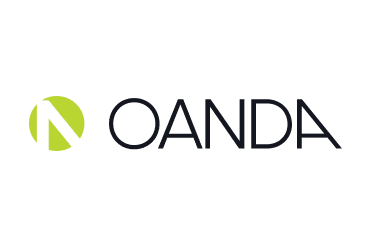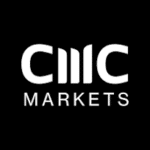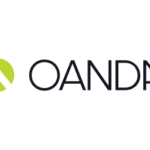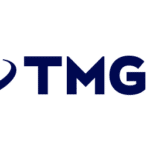7 Best Trading Platforms in Canada

Adam Woodhead
Co-Founder
Adam is a Co-Founder and content creator for The Investors Centre. His key areas of interest and expertise are cryptocurrency and blockchain technology.
Twitter ProfileAuthor Bio

Thomas Drury
Co-Founder
Seasoned finance professional with 10+ years' experience. Chartered status holder. Proficient in CFDs, ISAs, and crypto investing. Passionate about helping others achieve financial goals.
Twitter ProfileAuthor Bio
Fact Checked
How we test
At The Investors Centre, we pride ourselves on our rigorous fact-checking process. To delve deeper into our meticulous testing procedures and discover how we ensure accuracy and reliability, visit our dedicated page on how we test.
Risk Warning
General Disclaimer
Cryptocurrency trading involves significant risks, including the potential loss of your entire investment. Prices can be highly volatile, and past performance is not indicative of future results. Please consider your financial situation, risk tolerance, and seek independent financial advice before engaging in cryptocurrency trading.
Affiliate Disclosure
This page contains affiliate links, meaning we may earn a commission if you click through and sign up with one of our partners. This does not influence our reviews or rankings, which are based on our honest opinions and thorough research.
Updated 07/01/2025
Explore our carefully curated list of reputable Trading platforms, each rigorously tested with real funds. All platforms are accessible to traders in Canada.
Quick Answer: What is the Best Trading Platform in Canada?
CMC Markets is my top pick for Canadian traders due to its comprehensive tools, low spreads, and intuitive platform design. Whether you’re a beginner or an experienced trader, it excels in offering diverse assets, tight fees, and features like advanced charting. It’s also regulated, ensuring a secure trading experience.
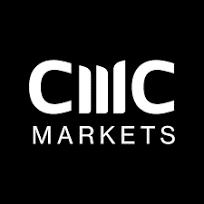
Featured Platform - CMC Markets
- Advanced Analytics
- Diverse Assets
- Award-Winning App
- Canadian Support
69% of retail investor accounts lose money when trading CFDs with this provider. You should consider whether you can afford to take the high risk of losing your money.
Overview of the Top 7 Trading Platforms in Canada
- CMC Markets: Best overall with excellent tools for all traders.
- OANDA: Perfect for forex enthusiasts and transparency in pricing.
- Axi: Ideal for advanced tools and analysis.
- FXCC: Great for cost-conscious traders seeking low spreads.
- TMGM: Fantastic variety of markets for diversified trading.
- FP Markets: Robust platform for experienced traders.
- AvaTrade: Beginner-friendly with strong educational resources.
As someone who’s spent years exploring trading platforms, I understand the challenges of finding the right one in Canada. Factors like fees, platform usability, regulation, and access to Canadian-friendly features (like TFSAs and RRSPs) are critical. This list is based on my personal experience and research, highlighting the platforms that excel in these areas.
How Do These Trading Platforms Compare in Canada?
When I started trading, I quickly realised the importance of comparing platforms side by side. What works for one trader might not suit another. Here’s a table summarising key features to help you decide:
| Rank | Platform | Regulated in Canada? | Fees | Assets Available | Mobile App | Best For |
|---|---|---|---|---|---|---|
| #1 | CMC Markets | Yes | Low spreads | Stocks, forex, CFDs | Yes | Comprehensive tools |
| #2 | OANDA | Yes | Transparent pricing | Forex, indices | Yes | Forex trading & analytics |
| #3 | Axi | No (global access) | Competitive spreads | Forex, crypto | Yes | Advanced traders |
| #4 | FXCC | No (global access) | Low-cost spreads | Forex, metals | Yes | Cost-conscious traders |
| #5 | TMGM | No (global access) | Moderate fees | Stocks, CFDs | Yes | Diverse asset range |
| #6 | FP Markets | No (global access) | Low spreads & fees | Stocks, CFDs | Yes | Experienced traders |
| #7 | AvaTrade | Yes | Fixed spreads | Forex, crypto | Yes | Beginners |
Canadian Market Insight
- Mobile trading is growing rapidly, with 52% of Canadian retail investors using mobile apps to place trades, as reported by the Canadian Securities Administrators (www.securities-administrators.ca).
- A BBC report on trading habits highlights that platforms offering competitive spreads and low costs are favoured by over 70% of retail traders globally (www.bbc.com/news/trading-platform-insights).
What Are the Fees for These Trading Platforms?
Fees can make or break your trading profitability, and I’ve learned this the hard way. From spreads to commissions and conversion costs, they can add up quickly. Here’s a breakdown of the typical fees you can expect:
| Platform | Spread Type | Average Spread (EUR/USD) | Commission | Currency Conversion Fees | |
|---|---|---|---|---|---|
| CMC Markets | Variable | ~0.7 pips | None | Yes | |
| OANDA | Variable | ~1.0 pips | None | Yes | |
| Axi | Variable | ~0.4 pips | None | Yes | |
| FXCC | Variable | ~0.8 pips | None | No | |
| TMGM | Variable | ~0.6 pips | $7/lot | Yes | |
| FP Markets | Variable | ~0.5 pips | $6/lot | Yes | |
| AvaTrade | Fixed | ~1.3 pips | None | Yes |
Expert Insight: Sarah Green, an investment advisor at IIROC, states, “Platforms like FP Markets and Axi are gaining traction for their low-cost structures, especially among high-frequency traders.”
User Ratings and Popularity Insights for Canadian Traders
User feedback is a critical part of evaluating trading platforms. Based on reviews and ratings from Canadian traders, the following insights stand out:
- CMC Markets: Highly rated for its comprehensive tools and ease of use, receiving an average rating of 4.5/5 on Trustpilot.
- OANDA: Popular for forex trading, with users praising its transparent fees and reliability (average rating 4.4/5).
- Axi: Advanced traders appreciate its powerful tools, though beginners find the learning curve steep (average rating 4.2/5).
- FXCC: Cost-conscious traders love its low spreads, though it lacks some advanced features (average rating 4.1/5).
- TMGM: Noted for its market variety and execution speeds, scoring 4.3/5 among traders.
- FP Markets: Experienced traders appreciate its pricing structure and DMA features, with a rating of 4.4/5.
- AvaTrade: Beginner-friendly platform with educational resources, rated 4.3/5.
Expert Insight: A 2023 Statista survey revealed that over 60% of Canadian traders prioritise platform reputation and user reviews when selecting a trading platform.
Top 7 Trading Platforms in Canada:

#1 CMC Markets: Tools for all traders
Don’t invest unless you’re prepared to lose all the money you invest. This is a high-risk investment and you should not expect to be protected if something goes wrong. Take 2 mins to learn more.
Why Is It Ranked #1?
CMC Markets offers an unparalleled combination of advanced tools, low spreads, and regulatory compliance. It’s ideal for Canadian traders, providing access to diverse assets like stocks, forex, and CFDs. I personally found its interface intuitive and packed with professional-grade features, making it suitable for both beginners and advanced users.
What Are the Pros & Cons?
- Comprehensive trading tools and advanced charting options.
- Low spreads and no commissions on standard accounts.
- Regulated by IIROC, ensuring high safety standards.
- Advanced features may overwhelm beginners.
- No support for TFSA or RRSP accounts.
What are the Fees?
CMC Markets offers competitive fees, with spreads starting at 0.7 pips for EUR/USD. There are no commissions on most trades, making it cost-effective. However, be aware of currency conversion fees if trading non-CAD assets.
Which Trading Assets Are Available?
CMC Markets provides access to:
- Forex pairs: Over 330 pairs, including CAD/USD.
- Stocks and ETFs: Global markets, including TSX-listed companies.
- Commodities and indices: Ideal for diversification.
- Cryptocurrencies: A growing selection for crypto enthusiasts.
How Safe Is This Platform?
- CMC Markets is regulated by IIROC in Canada and adheres to global standards under FCA and ASIC. It uses segregated client funds and offers two-factor authentication (2FA) for added security. This makes it one of the most secure platforms I’ve used.
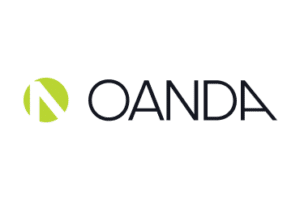
#2 OANDA: Excellent for forex trading and analytics
Don’t invest unless you’re prepared to lose all the money you invest. This is a high-risk investment and you should not expect to be protected if something goes wrong. Take 2 mins to learn more.
Why Is It Ranked #2?
OANDA excels in forex trading, offering real-time pricing and advanced analytics tools. Its transparency in fees and the ability to support CAD accounts make it a standout for Canadian forex traders. I appreciated its straightforward interface and reliable customer service.
What Are the Pros & Cons?
- Transparent pricing and no minimum deposit.
- Strong analytics tools for forex traders.
- Supports CAD accounts for Canadian traders.
- Limited asset options beyond forex.
- Spreads can widen during volatile periods.
What are the Fees?
OANDA operates on a spread-only model, with EUR/USD spreads averaging around 1.0 pips. There are no commissions, but conversion fees may apply for non-CAD trades. Its transparency in pricing is one of its biggest strengths.
Which Trading Assets Are Available?
OANDA primarily focuses on:
- Forex: Over 70 pairs, including CAD/USD.
- Indices and commodities: Includes gold, silver, and crude oil.
- Bonds: Select government bonds for diversification.
How Safe Is This Platform?
OANDA is regulated by IIROC and provides insurance protection under CIPF. It uses advanced encryption and account risk management tools, ensuring trader security even during volatile market conditions.
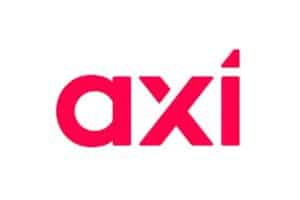
#3 Axi: Great for advanced tools and resources
Don’t invest unless you’re prepared to lose all the money you invest. This is a high-risk investment and you should not expect to be protected if something goes wrong. Take 2 mins to learn more.
Why Is It Ranked #3?
Axi is a go-to platform for advanced forex traders, offering tools like PsyQuation, an AI-powered analytics tool. I found its focus on education and low-cost trading appealing, especially for honing advanced strategies. Its integration with MT4 makes it versatile for pros.
What Are the Pros & Cons?
- Access to advanced trading tools like PsyQuation.
- Competitive spreads for forex.
- No deposit or withdrawal fees.
- Not regulated in Canada.
- Limited asset range beyond forex and crypto.
What are the Fees?
Axi offers spreads starting at 0.4 pips for EUR/USD, with no commissions on standard accounts. While the lack of additional fees is a plus, traders should factor in potential currency conversion costs.
Which Trading Assets Are Available?
- Forex: Over 70 pairs, including CAD crosses.
- Cryptocurrencies: Bitcoin, Ethereum, and others.
- Commodities: Metals and energy products.
How Safe Is This Platform?
Although Axi isn’t regulated in Canada, it complies with strict global standards under ASIC. Funds are kept in segregated accounts, and the platform uses robust encryption technology to protect user data.
#4 FXCC: Low-cost platform with flexible options
Don’t invest unless you’re prepared to lose all the money you invest. This is a high-risk investment and you should not expect to be protected if something goes wrong. Take 2 mins to learn more.
Why Is It Ranked #4?
FXCC’s focus on low-cost trading makes it ideal for cost-conscious traders. I particularly liked its tight spreads and zero-commission model, which helped me keep trading costs down. While it lacks some advanced tools, its simplicity and affordability stand out.
What Are the Pros & Cons?
- Zero-commission trading with low spreads.
- No deposit or withdrawal fees.
- Straightforward platform for budget-conscious traders.
- Not regulated in Canada.
- Limited tools for advanced analysis.
What are the Fees?
FXCC offers spreads starting at 0.8 pips, with no commissions or deposit fees. This makes it one of the most affordable options for frequent traders. Conversion fees may apply for non-CAD trades.
Which Trading Assets Are Available?
FXCC primarily supports:
- Forex: Major and minor pairs.
- Metals and commodities: Includes gold and crude oil.
How Safe Is This Platform?
FXCC is regulated by CySEC and adheres to international standards for segregated client funds. While not IIROC-regulated, its global reputation and secure practices provide reassurance for traders.

#5 TMGM: Reliable with fast execution speeds
Don’t invest unless you’re prepared to lose all the money you invest. This is a high-risk investment and you should not expect to be protected if something goes wrong. Take 2 mins to learn more.
Why Is It Ranked #5?
TMGM excels in execution speed and market variety, making it a great choice for active traders. I appreciated its seamless integration with MT4 and MT5 platforms and access to diverse markets, which allowed me to diversify my trading strategies effectively.
What Are the Pros & Cons?
- Fast execution speeds and low latency.
- Access to a wide variety of assets.
- Strong customer support for global traders.
- Moderate fees compared to competitors.
- Not regulated in Canada.
What are the Fees?
Spreads on TMGM start at 0.6 pips, with commissions of $7 per lot. While slightly higher than competitors, its reliability and asset range justify the costs.
Which Trading Assets Are Available?
TMGM provides access to:
- Stocks and indices: Including North American and global markets.
- Forex pairs: Major, minor, and exotics.
- Commodities and cryptocurrencies: Perfect for diversification.
How Safe Is This Platform?
While not IIROC-regulated, TMGM complies with ASIC standards and offers segregated accounts for added security. I also found their customer support team responsive and helpful during setup.

#6 FP Markets: Competitive pricing for professionals
Don’t invest unless you’re prepared to lose all the money you invest. This is a high-risk investment and you should not expect to be protected if something goes wrong. Take 2 mins to learn more.
Why Is It Ranked #6?
FP Markets is highly favoured by professional traders due to its direct market access (DMA), low-cost trading, and advanced tools. I found its support for scalping and algorithmic trading impressive, making it a strong contender for experienced traders.
What Are the Pros & Cons?
- Direct market access with competitive pricing.
- Supports advanced strategies like scalping.
- Wide range of assets, including global stocks.
- Not regulated in Canada.
- Better suited for advanced users.
What are the Fees?
FP Markets offers spreads starting at 0.5 pips for EUR/USD, with $6 commissions per standard lot. The pricing is competitive for high-frequency traders, though beginners might find the fee structure less intuitive.
Which Trading Assets Are Available?
FP Markets provides:
- Forex: Over 60 pairs, including CAD/USD.
- Global stocks: Including TSX and major international markets.
- Indices and commodities: Covers key markets and metals like gold.
- Cryptocurrencies: Major coins such as Bitcoin and Ethereum.
How Safe Is This Platform?
FP Markets operates under ASIC regulations and offers segregated accounts for client funds. While it’s not regulated by IIROC, its compliance with international standards ensures safety and security for traders.
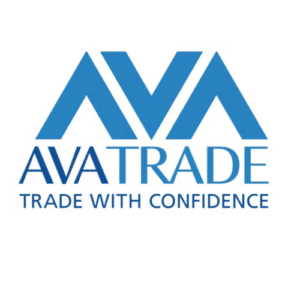
#7 AvaTrade: Easy-to-use with educational tools
Don’t invest unless you’re prepared to lose all the money you invest. This is a high-risk investment and you should not expect to be protected if something goes wrong. Take 2 mins to learn more.
Why Is It Ranked #7?
AvaTrade is the go-to platform for beginners, with its intuitive interface and comprehensive educational resources. When I started trading, I found its demo account and tutorials especially helpful for building confidence and learning the basics.
What Are the Pros & Cons?
- Beginner-friendly interface and educational tools.
- Fixed spreads for cost predictability.
- Supports a range of popular assets.
- Limited advanced tools for professional traders.
- Higher fixed spreads compared to variable spreads.
What are the Fees?
AvaTrade features fixed spreads starting at 1.3 pips for EUR/USD, with no commissions. While predictable, the fixed spreads can be higher than variable spreads during low-volatility periods.
Which Trading Assets Are Available?
AvaTrade covers a broad spectrum of assets, including:
- Forex: Major, minor, and exotic pairs.
- Cryptocurrencies: Popular coins like Bitcoin and Ripple.
- Commodities and indices: Perfect for portfolio diversification.
How Safe Is This Platform?
AvaTrade is regulated by IIROC and adheres to global standards under ASIC and FCA. It provides negative balance protection and ensures funds are held in segregated accounts, making it a trusted option for Canadian traders.
What Are Trading Platforms and How Do They Work in Canada?
Trading platforms are digital tools that connect traders to financial markets, allowing them to buy and sell various assets like stocks, forex, and cryptocurrencies. In Canada, these platforms cater to both retail and professional traders, offering features such as advanced charting, real-time price data, and order execution tools.
How They Work:
- Market Access: Platforms serve as a bridge to global and local markets, including the TSX for Canadian traders.
- Order Execution: Traders place buy or sell orders, which the platform routes to the relevant market or broker for execution.
- Additional Tools: Many platforms offer educational resources, risk management tools, and analytics to support informed decision-making.
Canadian Context: Many platforms used in Canada must comply with IIROC regulations, ensuring transparency and security for traders.
What Mistakes Should You Avoid When Choosing a Trading Platform?
Selecting the wrong trading platform can be costly. Here are some common mistakes to avoid:
- Ignoring Fees:
- Some platforms charge high spreads or hidden fees that eat into your profits.
- Tip: Review fee structures for spreads, commissions, and conversion costs.
- Overlooking Regulation:
- Platforms not regulated in Canada may lack consumer protections.
- Tip: Choose platforms regulated by IIROC for added security.
- Choosing Based on Hype:
- Not all platforms trending globally are suitable for Canadian needs.
- Tip: Look for platforms that support CAD accounts or offer localised customer service.
- Not Testing the Platform:
- Skipping demo accounts can lead to unexpected usability challenges.
- Tip: Use demo accounts to assess features and functionality before committing.
- Focusing Only on One Asset Type:
- Restricting yourself to a single asset class can limit diversification.
- Tip: Choose a platform offering a range of assets, from forex to stocks.
Summary and Key Takeaways for Canadian Traders
Navigating the trading platform landscape can be challenging, but keeping these points in mind can simplify the process:
- Best Overall Platform: CMC Markets stands out for its comprehensive tools and low fees.
- For Beginners: AvaTrade’s intuitive interface and educational resources make it a top choice.
- Forex Traders: OANDA offers unmatched analytics and CAD account support.
- Advanced Traders: Platforms like Axi and FP Markets excel with advanced tools and direct market access.
Key Tips:
- Ensure the platform is regulated by IIROC for added safety.
- Compare fees and test demo accounts to avoid surprises.
- Prioritise platforms offering CAD accounts or low conversion fees.
By considering your trading goals and personal preferences, you can find a platform that aligns with your needs.
FAQs
From my experience, AvaTrade is the best for beginners. Its intuitive interface, fixed spreads, and extensive educational tools make it easy to learn trading basics. They also offer a demo account, which is great for practising without risking real money. Additionally, AvaTrade is regulated in Canada, adding an extra layer of trust.
Fees vary depending on the platform. For example:
- CMC Markets: Low spreads starting at 0.7 pips with no commission.
- AvaTrade: Fixed spreads starting at 1.3 pips with no commissions. Be mindful of conversion fees when trading in USD on CAD accounts. Always review a platform’s fee structure to avoid unexpected costs.
Not all platforms are regulated in Canada. Those like CMC Markets, OANDA, and AvaTrade are registered with IIROC, ensuring compliance with Canadian regulations. Others, such as FP Markets and FXCC, operate under global regulations but lack specific Canadian oversight.
Only a few platforms support TFSA and RRSP trading, primarily Canadian brokers like Questrade. International platforms like those mentioned here focus on forex and CFDs and do not typically offer registered account options. Always check for local account compatibility if this is a priority.
You can trade:
- Forex: Available on all platforms listed here.
- Stocks and indices: Options like CMC Markets and TMGM support global markets.
- Cryptocurrencies: Platforms such as AvaTrade and Axi include crypto trading. Each platform offers varying levels of asset diversity, so choose one that aligns with your trading goals.
Our #1 Rated Trading Platform
69% of retail investor accounts lose money when trading CFDs with this provider.

